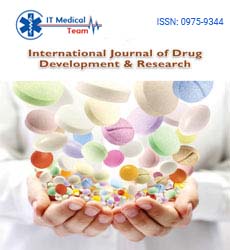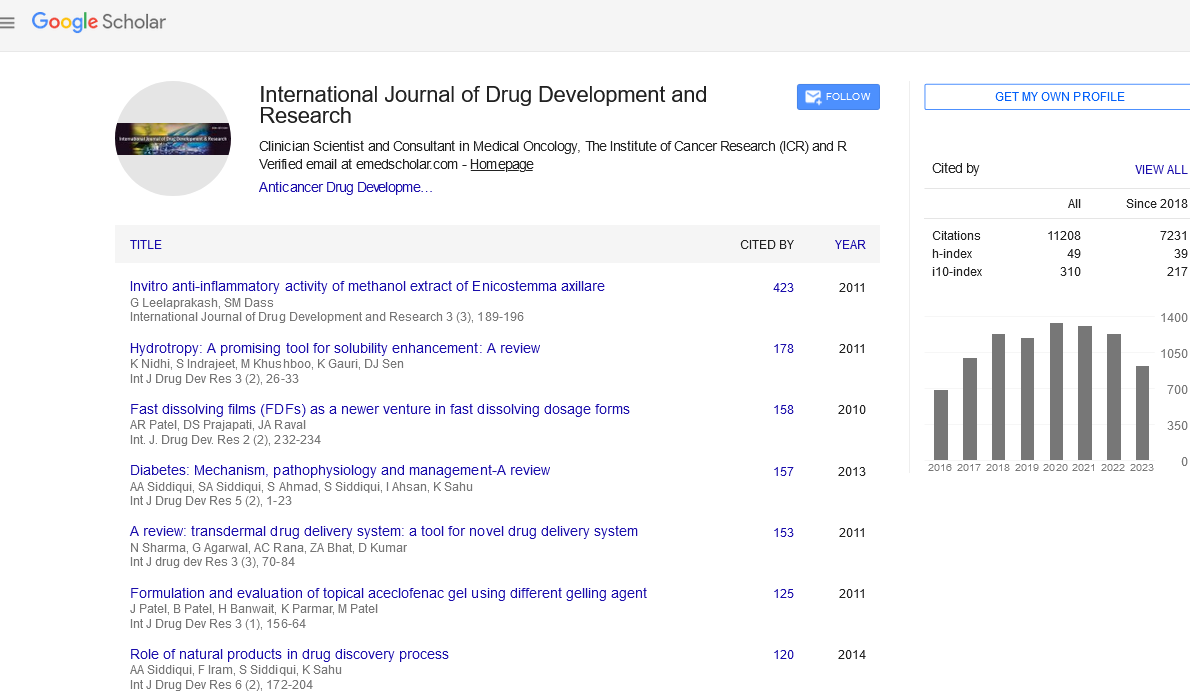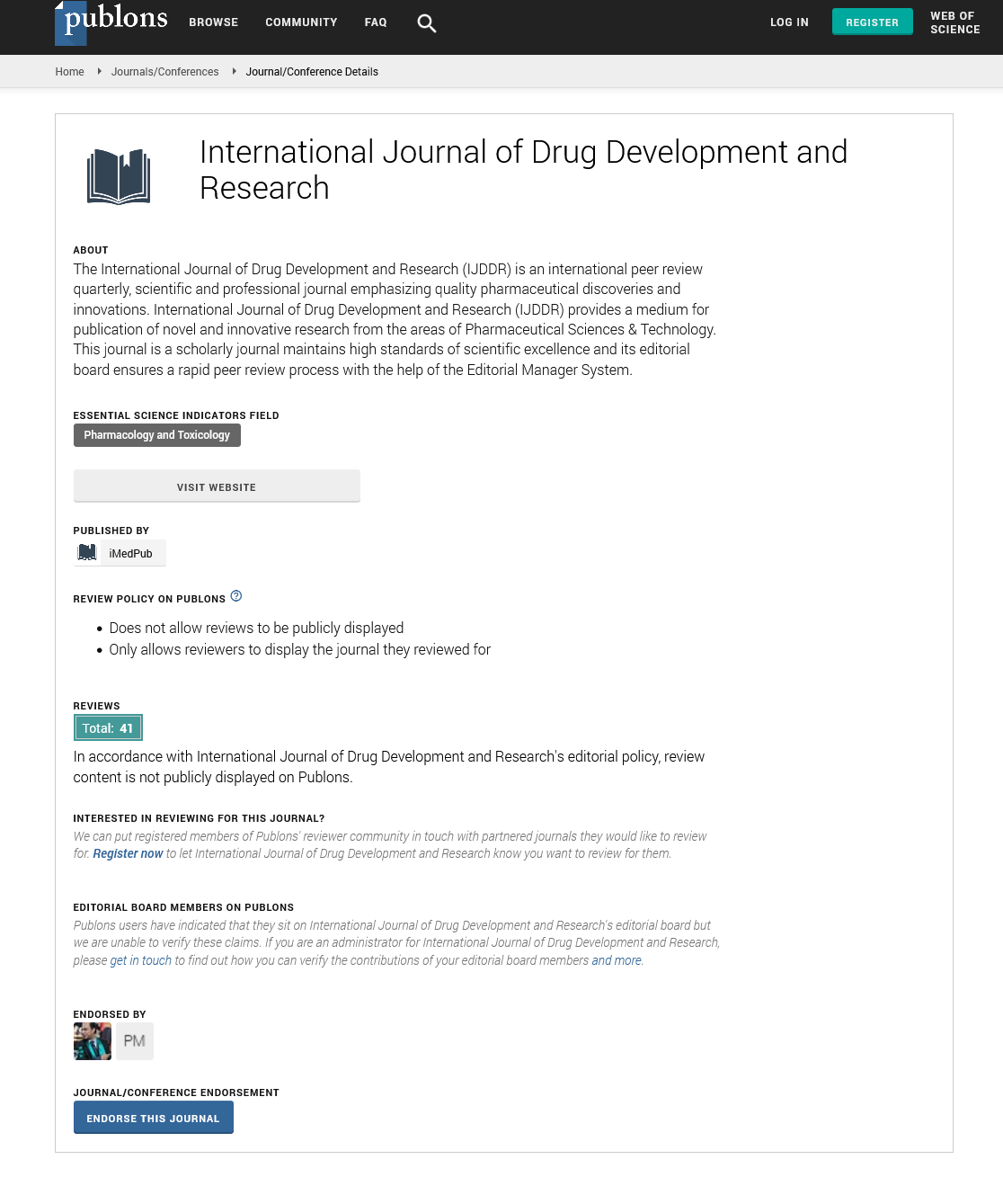Shaibu Oricha *
Department of Pharmacology, University of Padova, via Ospedale Civile, Padova, Italy
- *Corresponding Author:
- Shaibu Oricha
Department of Pharmacology
University of Padova
via Ospedale Civile
Padova
Italy
E-mail:
Oricha@Shaibu.edu.it
Received Date: May 06, 2021; Accepted Date: May 20, 2021; Published Date: May 27, 2021
Citation: Oricha S (2021) Adverse Drug Events: Untoward Medical Occurrence. Int J Drug Dev & Res Vol.13 No.3:e001.
Description
An Adverse Drug reaction (ADE) is a physical issue coming about because of clinical mediation identified with a drug. This incorporates medicine blunders, antagonistic medication responses, hypersensitive responses, and excesses. ADEs can happen anyplace: in clinics, long haul care settings, and outpatient settings.
In inpatient settings, ADEs:
• Record for an expected 1 out of 3 of all emergency clinic unfriendly occasions
• Influence around 2 million clinic remains every year
• Drag out emergency clinic stays by 1.7 to 4.6 days
• Every year, ADEs in outpatient settings represent:
• Over 3.5 million doctor office visits
• An expected 1 million crisis office visits
• Roughly 125,000 clinic confirmations
Fortunately most ADEs are preventable. Diminishing ADEs is required to bring about more secure and more excellent medical care administrations, decreased medical care costs, more educated and connected with shoppers, and improved wellbeing results.
ODPHP is focused on lessening ADEs through the Public Activity Plan for Antagonistic Medication Occasion Anticipation (ADE Activity Plan). Get familiar with the ADE Activity Plan and the objectives and measures we're utilizing to evaluate our advancement.
Unfavorable medication occasions cause roughly 1.3 million crisis division visits every year. Around 350,000 patients every year should be hospitalized for additional treatment after crisis visits for unfavorable medication occasions. Individuals commonly accept more medications as they age, and the danger of unfriendly occasions may increment as more individuals take more meds.
A few drugs require blood testing and these are bound to cause genuine antagonistic occasions. Getting a blood test is one approach to ensure the portion of your medication is perfect for you. In excess of 40% of crisis visits that expect patients to be hospitalized are brought about by only a couple drugs that require standard blood test checking.
In spite of the fact that anti-infection agents are acceptable medications for specific sorts of contaminations, they are likewise one of the kinds of prescriptions that reason the most crisis visits for antagonistic medication occasions. Around 150,000 grown-ups are treated in crisis divisions every year due to unfavorable occasions from anti-microbials.
Meds are for the most part safe when utilized as endorsed or as coordinated by the name, however there are chances in taking any medication. An unfriendly medication occasion is the point at which somebody is hurt by a medication. Particular kinds of unfavorable medication occasions are more normal for explicit prescription classes, for example, low glucose (hypoglycaemia) identified with insulin use.
Anti-infection agents are one of the top prescription classes bringing about crisis office visits for unfavorable medication occasions (ADEs). In light of information from 2013-2014, every year in the US there are an expected 200,000 crisis division visits for antagonistic occasions identified with anti-toxins By and large, anti-infection agents are liable for very nearly one out of six (16%) assessed crisis office visits for ADEs. Anti-toxins are associated with more crisis division visits for ADEs than some other class of medications in patients under 50 years old. In kids 5 or more youthful, anti-microbials cause the greater part (56%) of assessed crisis office visits for ADEs. Around four out of five (82 percent) crisis division visits for ADEs from anti-microbials alone are because of unfavourably susceptible responses.
Anti-microbials are perhaps the most endorsed medicine classes in the US, which adds to the high number of crisis division visits for unfriendly medication occasions from these meds. Yet, even in the wake of representing how frequently antiinfection agents are recommended, there is a significant danger of a crisis office visit for an anti-toxin related antagonistic medication occasion. From 2004-2006, there was around one of every 1,000 danger that an individual recommended an antiinfection would require a visit to the crisis division as a result of an anti-toxin result. In any case, it is assessed that there is just one out of 4,000 possibility that an anti-microbial would keep a genuine inconvenience from an upper respiratory disease. An unfavourably susceptible response is the most widely recognized kind of anti-toxin related unfriendly medication occasion, so limiting pointless anti-toxin use is the most ideal approach to diminish the danger of antagonistic medication occasions from anti-microbials.
37288






